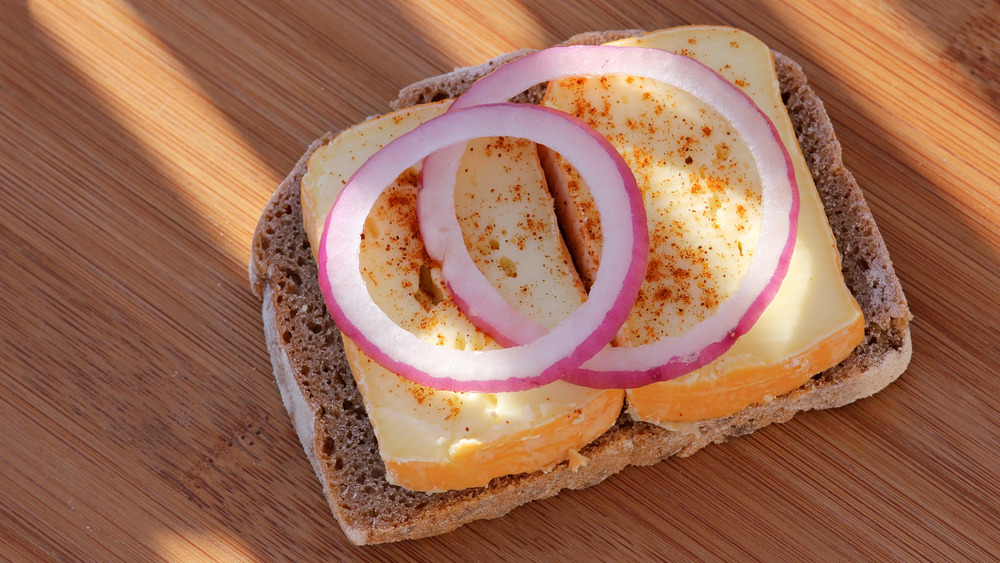Read This Before Taking Another Bite Of Limburger Cheese
Limburger cheese is probably most well-known for its rather potent aroma. A European, semi-soft cheese, it's certainly one that can clear a room, though it has a mild taste despite the smell. Limburger, while not necessarily often available in your average big-box grocery store, is a favorite among cheese connoisseurs who prefer a cheese with a pungent kick. According to cheese.com, limburger is often best enjoyed on sandwiches, the simpler the better. The website recommends trying a slice of the cheese on brown bread with onions and with Belgian beers.
However, if limburger's unsavory smell isn't enough to put you off the cheese, you might think twice about taking another bite after you find out exactly why it smells the way it does. It's a fact that's enough to turn even the most adamant cheese fan's stomach and if you happen to be eating a nice big hunk of limburger right now, it might even make you gag.
Limburger cheese shares something in common with some of your most unappealing body parts
Like many types of cheeses, limburger gets its recognizable smell from a genus of bacteria — a bacteria necessary to make limburger, but which may turn you off from the cheese for good once you realize where else this bacteria grows. The bacteria in question is brevibacterium linens, according to Gizmodo. This type of bacteria only grows under salty and moist conditions and needs a fair amount of oxygen to survive. The cheese is salty enough to grow the bacteria on its own, but the necessary moisture is provided via the cheesemakers, who regularly wash the cheese as it ages. This on its own isn't that unappetizing. What is, though, is where else you can find brevibacterium linens living — your feet.
Yep, the same bacteria that makes limburger cheese possible is the same bacteria that lives between your toes, stinking up your socks and shoes on a regular basis. It turns out that your sweaty, salty, moist feet produce just the right environment for this bacteria to thrive.
One good thing about this factoid? Because this bacteria lives on limburger cheese, it makes the cheese fairly irresistible to nuisances that might go after your toes on occasion — like mosquitos and vampire bats (really). So, if you ever worry about being attacked by either, just set out some limburger and hope they go for the cheese, not you.

